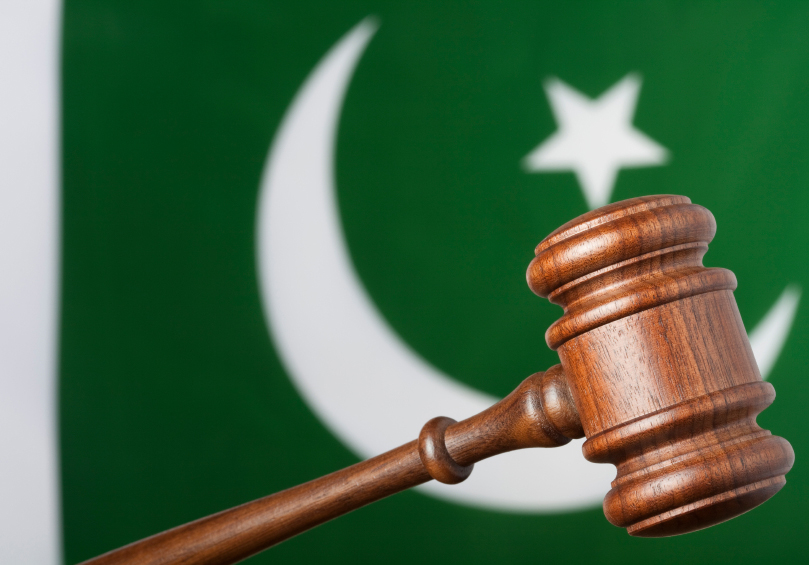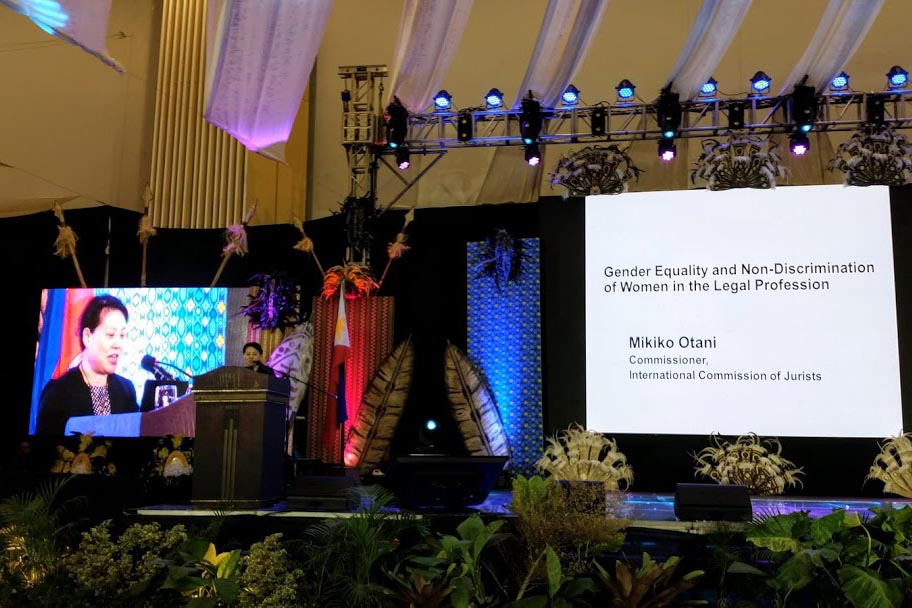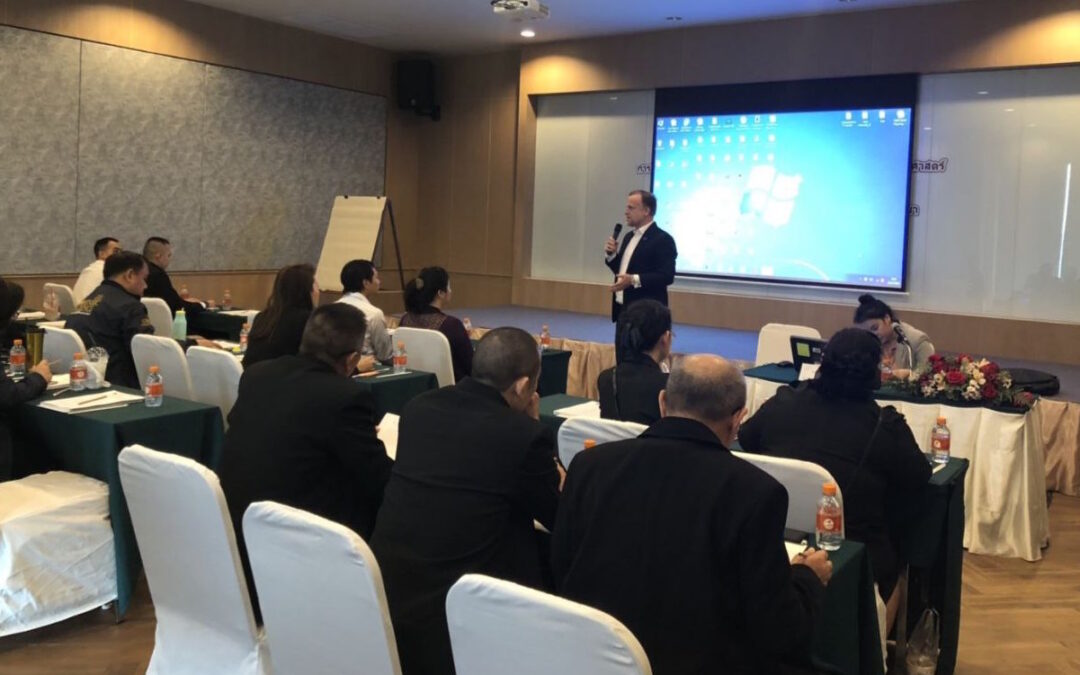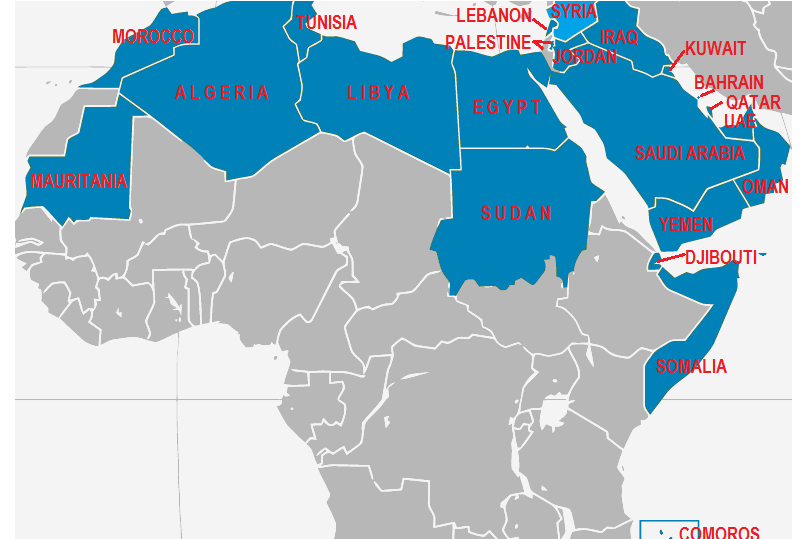
Apr 2, 2019 | News
The ICJ raised serious human rights concerns following the announcement by the Government of Brunei of the third phase of implementation of the 2013 Syariah Penal Code with its entering into force on 3 April 2019.
This week, the Syariah Penal Code will come into full effect, which means the imposition of horrific punishments – including the severing of limbs, whipping, and stoning to death – on those found to have committed acts such as rape, adultery, sodomy, and to have engaged in extramarital sexual relations.
“There are no circumstances under which punishments such as stoning, amputation or public flogging are acceptable under international law,” said Frederick Rawski, ICJ’s Regional Director for Asia and the Pacific.
“They are blatant violations of the prohibition on all forms of torture and other cruel, inhuman or degrading treatment or punishment,” he added.
Stoning, amputation and public flogging are contrary to the commitment that Brunei made when it became a party to the Convention on the Elimination of All Forms of Discrimination against Women (CEDAW), including its obligations to take all necessary measures to eliminate all forms of discrimination against women.
Those punishments also violate the Convention on the Rights to the Child (CRC) to which Brunei is a party.
The ICJ also notes that consensual sexual activities, such as sodomy, adultery and other extramarital and premarital sexual relations, as much as consensual same-sex sexual conduct, do not constitute recognizably criminal offences under international human rights law and standards and should therefore not be criminalized at all.
The UN Special Rapporteur on Torture has stated that “any form of corporal punishment is contrary to the prohibition of torture and other cruel, inhuman or degrading treatment or punishment”, and cannot be considered a “lawful sanction” under international law.
When Brunei’s Syariah Penal Code was adopted in October 2013, the ICJ condemned it for violating international human rights law and standards.
The Syariah Penal Code will also effectively reintroduce the death penalty, which has generally been viewed as having been de facto abolished, as it has not been imposed since 1957.
“The re-introduction of the use of the death penalty in the Syariah Penal Code is out of step with the global trend towards the abolition of capital punishment and the establishment of a moratorium on executions,” said Rawski.
In addition, the ICJ is concerned about the disproportionate and discriminatory impact of the Code on women and girls and on lesbian, gay, bisexual and transgender individuals in the country.
Although the 2013 Syariah Penal Code states that the penalty of stoning to death applies regardless of whether the offender is male or female, women face a greater risk of being convicted and sentenced to death because they are more likely to be found guilty of adultery or of otherwise having engaged in extramarital sexual relations.
“In addition to imposing penalties that are in clear violation of international law, the underlying ‘offenses’ are themselves discriminatory,” said Rawski.
“The Code is particularly regressive coming at a time when other Commonwealth countries are taking steps to de-criminalize same-sex consensual relations, and end discrimination and violence against women,” he added.
The ICJ strongly urges the Government of Brunei to withdraw the 2013 Syariah Penal Code, and take steps to ensure that its laws comply with international law and standards, consistent with Brunei’s obligations under international human rights instruments, including the CEDAW and the CRC.
Contact:
Emerlynne Gil, ICJ Senior International Legal Adviser, t: +66 840923575, e: emerlynne.gil(a)icj.org
Additional information:
On 17 December 2018, the UN General Assembly adopted a resolution calling for a global moratorium on the death penalty, with the support of a 120 countries.
According to the Office of the High Commissioner for Human Rights more than 160 UN member countries have either abolished the death penalty or introduced a moratorium on its use in law or practice.
The ICJ considers the imposition of the death penalty to be a violation of the right to life and the prohibition of torture and other cruel, inhuman or degrading treatment or punishment.

Apr 1, 2019 | News
As military courts in Pakistan once again cease to have jurisdiction over civilians for terrorism-related offences, the Government must bring reforms to strengthen the country’s criminal justice system, the ICJ said today.
Perpetrators of terrorist attacks and other serious crime must be brought to justice fair trials before competent, independent and impartial courts as required under international law, the ICJ added.
“The lapse of the jurisdiction of military courts over civilians is a step in the right direction, but unsurprisingly – even four years after military courts were empowered to try civilians – there is no sign of the promised reforms to strengthen the ordinary criminal justice system to effectively and fairly handle terrorism-related cases,” said Frederick Rawski, ICJ’s Asia Director.
The 23rd Amendment and corresponding amendments to the Army Act, 1952, lapsed on 30 March 2019, as their respective two-year sunset clauses expired. So far, the Government has failed to get support from opposition parties for a constitutional amendment to once again extend the jurisdiction of military courts to conduct trials of civilians.
“The Government must not re-enact legislation to continue secret military trials of civilians, nor resort to more short-term, short-sighted security measures that are contrary to Pakistan’s obligations to protect human rights,” Rawski said.
“Instead, the Government should urgently invest in enhancing the capacity and security of judges, investigators and prosecutors to make the regular criminal justice system more effective in conducting fair, credible terrorism trials, and bringing perpetrators to account without imposing the death penalty.”
According to military sources and ICJ’s monitoring of military trials in Pakistan since January 2015, military courts have convicted 617 people for terrorism-related offences, out of which 346 people have been sentenced to death and 271 people have been given prison sentences. At least 56 people have been hanged. Only four people have been acquitted.
The ICJ has documented serious fair trials violations in the operation of military courts, including: denial of the right to counsel of choice; failure to disclose the charges against the accused; denial of a public hearing; failure to give convicts copies of a judgment with evidence and reasons for the verdict; and a very high number of convictions based on “confessions” without adequate safeguards against torture and ill treatment.
Contact
Frederick Rawski, ICJ Asia Pacific Regional Director (Bangkok), e: frederick.rawski(a)icj.org
Reema Omer, ICJ International Legal Adviser for Pakistan (London), t: +447889565691; e: reema.omer(a)icj.org
Additional information
Military courts were first empowered to try civilians for certain terrorism-related offences in January 2015 through the 21st Amendment to the Constitution and amendments to the Pakistan Army Act, 1952, which were in operation for a period of two years.
The expansion of the jurisdiction of military tribunals was a key part of the Government’s 20-point National Action Plan, adopted following the attack on the Army Public School in Peshawar in December 2014. NAP envisioned military courts to be a short-term “solution” to try “terrorists”, to be operational only for a two-year period during which the government would bring about necessary “reforms in criminal courts system to strengthen the anti-terrorism institutions”.
Despite promises that military courts were only temporary, after the expiration of the 21st Amendment, on 31 March 2017, Parliament enacted the 23rd Amendment and amendments to the Army Act to renew military courts’ jurisdiction over civilians. The amendments were given retrospective effect from 7 January 2017, and were due to lapse two years after their date of “commencement”. The expanded jurisdiction of military courts lapsed on 30 March 2019 (even though earlier reports suggested the amendments would expire on 6 January 2019) — two years after the date of “operation” of the 23rd Amendment).
The ICJ opposes the death penalty in all circumstances as a form cruel, inhuman and degrading punishment and an arbitrary denial of the right to life. The ICJ recalls that the UN General Assembly has by overwhelming majorities repeatedly called on all states the retain the death penalty to place a moratorium on the practice with a view to abolition. Pakistan previously had such a moratorium from 2008 to 2014.

Apr 1, 2019 | News
On 31 March, Mikiko Otani, ICJ’s Commissioner and a member of the UN Committee on the Rights of the Child, spoke to Filipino lawyers at the bi-annual National Lawyers’ Conference of the Integrated Bar of the Philippines (IBP), which took place at the Iloilo Convention Center, Iloilo City.
Mikiko Otani, who had been Chair of the Committee on International Human Rights of the Japan Federation of Bar Associations (JFBA) remains active in the JFBA, talked about the importance of advancing gender equality in the legal profession and the important initiatives of the JFBA on eliminating gender discrimination.
She noted that “female lawyers experience many forms of discrimination in the workplaces, practices, court rooms and bar associations.”
In countries all over the world, many formal barriers women used to face in entering the legal profession, including admission to law schools, the bar, have been eliminated.
However, women continue to face barriers, some of which are specific to the legal profession, but others common to women who work more generally.
Mikiko Otani noted that when she started practice as a lawyer in 1990, women applicants for jobs at law firms would often be asked during the interview whether they planned on getting married or having children.
Law firms preferred to hire male lawyers as they were thought to be unencumbered with looking after household matters, such as housekeeping and child care.
She recalled, “My colleagues questioned my decision to get married and have children almost immediately after becoming a lawyer while also continuing my practice as this was an unusual for women lawyers in Japan to do at that time. They felt that my decision to start a family at that point would be a hindrance to my career.”
She also talked about the bias observed in case assignment, where only male lawyers would be assigned to cases that required extensive traveling, while female lawyers would be often assigned to family cases, which are considered to be easy, unpopular or low-profile cases.
There was also frequent bias against female lawyers in promotion or offering partnership in law firms, contributing to a major gender gap in income between male and female lawyers.
In 2008, the JFBA formulated a Basic Plan which included the study of inequalities between male and female lawyers in Japan, finding ways to ensure a work-life balance for women, creating complaint handling bodies, and hosting trainings and educational activities in order to promote gender equality.
Mikiko Otani’s remarks resonated among many female lawyers in the Philippines, who shared in the discussion that followed that they face the same challenges.
“As lawyers, it is our responsibility to assist everyone, including women, in accessing justice,” said Marienne Ibadlit, a member of the Board of Governors of the IBP.
“We cannot be faithful to this responsibility if within our profession, we perpetuate gendered relationships and social inequalities that discriminate against women. A bar association that is committed to gender equality is a prerequisite to a justice system that does not discriminate against women and ensures the full enjoyment of women of their human rights.”
Contact:
Emerlynne Gil, Senior International Legal Adviser for Southeast Asia, t: +662 619 8477 (ext. 206) ; e: emerlynne.gil(a)icj.org

Mar 31, 2019 | News
From 29 to 31 March 2019, the ICJ co-hosted a workshop in Ayutthaya province for authorities from Thailand on Human Rights, Investigation Techniques and Forensic Examination of Evidence. The event focused on how such investigations should be conducted in accordance with international human rights law and standards.
The workshop was co-hosted with Thailand’s Ministry of Justice and the United Nations Office of the High Commissioner for Human Rights (OHCHR).
The participants included 35 criminal investigators, public prosecutors, representatives of the Ministry of Justice’s Department of Special Investigation (DSI), the Central Institute of Forensic Science (CIFS), the Ministry of Defense, the National Anti-Corruption Commission and the Office of the Narcotics Control Board.
Kingsley Abbott, Senior Legal Adviser for Global Redress and Accountability at the ICJ and a member of the Working Group in revising the Minnesota Protocol, presented a summary of the international human rights legal framework applicable to the investigation of unlawful deaths and enforced disappearance.
He also introduced an outline of the revised Minnesota Protocol on the Investigation of Potentially Unlawful Death (2016), which was launched in Thailand on 25 May 2017.
The Protocol formed the core of the materials used at the workshop. He also addressed the use of telecommunication evidence as evidence at trial.
Other speakers included:
- Amornrat Lekwichai, Senior Professional Level Forensic Scientist from the CIFS, who addressed the use of telecommunication and digital evidence in criminal cases towards establishing the identity of suspects;
- Pornthip Rojanasunan, Adviser with the CIFS and a member of the Advisory Panel in revising the Minnesota Protocol, who spoke on forensic pathology and the need for independent autopsies in an independent and impartial investigative process;
- Badar Farrukh, Human Rights Officer from OHCHR, who addressed witness interviews and witness protection;
- Angkhana Neelapaijit, National Human Rights Commissioner and spouse of lawyer Somchai Neelapaijit, a victim of enforced disappearance; and
- Somchai Homlaor, a leading Thai human rights lawyer and member of several independent fact-finding commissions, who raised concerns about challenges for accountability for human rights abuses in Thailand’s criminal justice.
This workshop is part of the ICJ’s ongoing efforts to ensure the domestic implementation of international law and standards on the investigation of potentially unlawful deaths and enforced disappearances.
The ICJ has held several Workshops on the same topic including:
Regional Workshops
National Workshops
Contact
Kingsley Abbott, Senior Legal Adviser for Global Redress and Accountability, ICJ Asia Pacific Regional Office, t: +66 94 470 1345, e: kingsley.abbott@icj.org

Mar 29, 2019 | News
As leaders gather for the League of Arab States (LAS) Summit beginning on 31 March 2019 in Tunis, the ICJ called on them to place human rights and accountability for violations at the forefront of their agenda.
In particular, the ICJ urged the Summit to take immediate steps to revise the Statute of the Arab Court of Human Rights in line with international standards to allow access by victims of human rights violations in the region to such a Court.
“We’ve been witnessing a spike in gross human rights violations across the Arab region, including in extrajudicial executions, enforced disappearances, arbitrary detentions, and torture and other ill-treatment,” said Said Benarbia, the ICJ’s MENA Programme Director.
“The region is in dire need of a credible and independent judicial mechanism to provide justice for human rights violations, the overwhelming majority of which presently go unaddressed,” he added.
The ICJ called on external participants to prioritize human rights in their discussions with League member States at the Summit.
Expected attendees include United Nations Secretary-General Antonio Guterres, the European Union High Representative for Foreign Affairs and Security Federica Mogherini, the Head of the African Union Commission Moussa Faki Mahamat, and the Secretary General of the Organization of Islamic Cooperation Yousef bin Abdul Al-Othaimeen.
Many States in the region are plagued by widespread and systematic violations.
These range from torture, enforced disappearance and arbitrary detentions in Egypt, attacks against human rights defenders and journalists in Saudi Arabia, including the high profile enforced disappearance and killing of Saudi journalist Jamal Khasshogi, as well as the judicial harassment of human rights defenders and political activists throughout the region.
Civilian populations have borne the brunt of violations and crimes through military operations by governments and armed groups in Yemen, Syria and Libya, and in the context of the Israeli-Palestinian conflict.
“International leaders mustn’t sit back and follow the agendas of rights-violating States at this Summit, which will no doubt be directed towards further entrenchment of their authoritarian regimes at the expense of victims,” said Benarbia.
“Instead, they should urge LAS members States to ensure accountability for human rights violations in the region, including by revising and then making operational the Statute of the Arab Court,” he added.
The ICJ said that the process of revision should only be done with the participation of a wide range of stakeholders, civil society, judges, academics, bar associations, and victims of violations.
Contact:
Said Benarbia, Director of the ICJ Middle East and North Africa Programme, t: +41-22-979-3817; e: said.benarbia(a)icj.org
Background
The Statute of the Arab Court of Human Rights, which aims to establish a regional human rights court for Arab States, was approved by the LAS Ministerial Council on 7 September 2014, but is yet to come into force.
The ICJ and others have identified significant flaws in the Statute, highlighted in the 2014 ICJ report. The report notes that the Statute does not allow victims themselves to submit complaints directly to the Court, making access to justice an illusion. In addition, the Statute does not provide for sufficient guarantees to ensure judicial independence and impartiality; does not provide adequate protective measures for petitioners, their representatives or witnesses; and fails to require the Court to interpret the Arab Charter in line with international human rights obligations.
MENA-Arab Court HR-News-2019-ARA (full story in Arabic, PDF)









